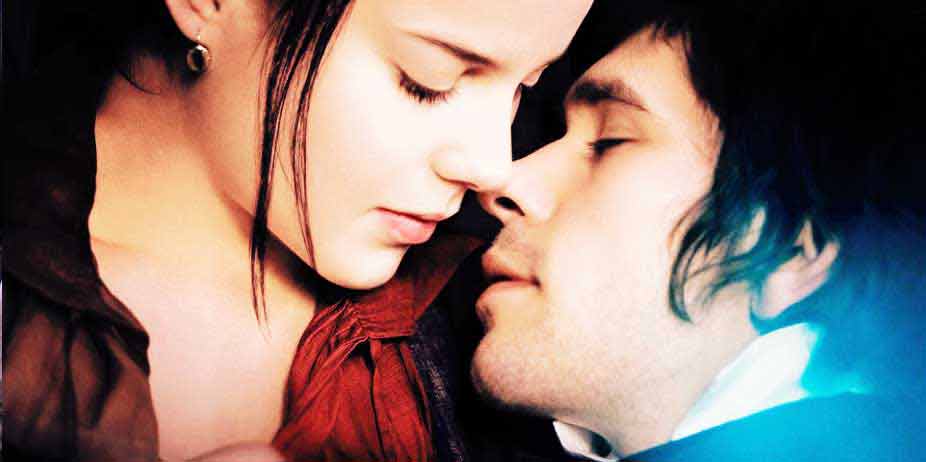Bright Star (2009)
One of the more unusual and romantic period pieces to come out in quite a long time, Bright Star follows the touching and sad relationship between a poet and the woman who wins over his heart.
There is nothing Fanny Brawne (Abbie Cornish) likes more than sewing; spending painstaking hours over stitches and devising her own patterns, the most important thing in her life is having the first double-pleated frilled collar or finishing a new and impressive bonnet to wear to church. This keeps her happily preoccupied when she is not feuding with the poet who rents their winter house. Charles Brown (Paul Schneider) loves nothing more than to tease Fanny incessantly about her taste in clothes, leaving her to retort saucily on the state of his sad poetical aspirations. His dear friend John Keats (Ben Whishaw) has come to stay with him temporarily in order to care for his ailing younger brother in the nearby town and Fanny finds his company far more pleasurable than Brown's. His interest in her sewing and her interest in his poems prompt them to spend more and more time together, to the frustration of her well-meaning mother. Marriage to "Mr. Keats" would be impossible since he is no more than a penniless aspiring poet whose works are often critiqued mercilessly in the local press.
But in spite of social barriers and financial instability, the two seem determined to love one another -- no matter what anyone says about it, and the rest of the film follows the romantic ups and downs of their relationship. As fits a movie centered around a poet, there is something romantic to this production, from the painstaking detail taken with the costumes (being a seamstress and designer, Fanny's wardrobe is magnificent and certainly different from everything else we have seen from the period before) to the haunting cinematography and gorgeous scenery. Fanny takes to collecting butterflies to represent her love for John and fills her room with them; they flutter around the camera during one important scene and show off their wings. Later, when her mood has grown more bleak, the remnants of the dead insects are shown being swept up, symbolic of her fallen hopes. There are quite a few visual metaphors present and all leave an impression, but the story really does revolve around two people who are deeply "in love" -- so much so to the point of hysterics. I rolled my eyes when Fanny went into a melodramatic tantrum and demanded a knife to stab herself with, since she was in the depths of romantic despair. Portions of the film tend to be overly sentimental and sappy, but most viewers won't mind.
One of the most unusual aspects of the script is how witty it is, full of clever exchanges of dialogue between Fanny and Mr. Brown, whom she loves to insult on any occasion, and just generally funny comments from the heroine. The characters are all likable although some of them have fairly minor involvement and the acting is very admirable from a virtual cast of unknowns (audiences will recognize a few faces from British productions). The score is not worth mentioning and I found the opening and closing melodies not to my taste, but overall it's a masterful treatment of a story that takes a melancholy turn in the second half. It is best that you do not expect a happy ending -- and if you know Keats you will not make that mistake, but it felt like the first half of the movie was wonderful and then the second half carried an ominous sense of dread in waiting for the inevitable outcome. If you prefer happier conclusions this will not be the film for you but if you do not mind sweet, slow-moving and deeply romantic biographical love stories, you will find yourself captivated by the poetic nuances of Bright Star.
Sexual Content:
It's implied that a
young woman has become pregnant out of wedlock; a
man suggests to another that he merely "bed" the
woman he loves. She later says she would do anything
he asked, but he declines her veiled invitation.
There is an immense amount of passionate kissing and
in one instance, an unmarried couple lay beside one
another on a bed and talk (they are very proper
about it, arranging the pillows so they are not in
an intimate position, with their knees touching). Language:
A couple of mild profanities said in anger and
frustration and a half dozen mild abuses of deity.
(Fanny cries out, "Oh, God!" upon learning of
someone's death, but it's unclear whether or not she
intends it to be an exclamation or a half-prayer.) Violence: None. Other: Attempted suicide.

